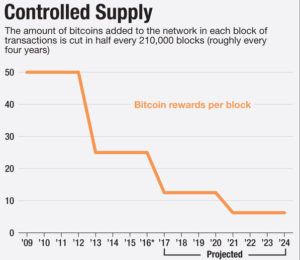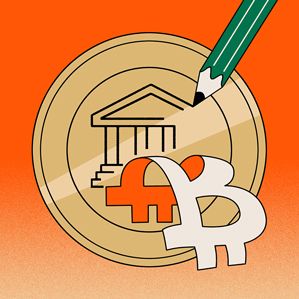 Last week I dipped my toes in the waters of the Lifeboat blog and shared a link about blockchain technology. If you haven’t heard about blockchain technology yet, you can read about it here, here, here, here, here…you get the picture. Blockchain has tons of potential, and appears to also attract hype and money. All which goes to say, there has been a lot of buzz about its social and economic potential. But there is another aspect of blockchain that deserves some futurist exploration, which is that it signals we live in Postnormal Times.
Last week I dipped my toes in the waters of the Lifeboat blog and shared a link about blockchain technology. If you haven’t heard about blockchain technology yet, you can read about it here, here, here, here, here…you get the picture. Blockchain has tons of potential, and appears to also attract hype and money. All which goes to say, there has been a lot of buzz about its social and economic potential. But there is another aspect of blockchain that deserves some futurist exploration, which is that it signals we live in Postnormal Times.
Postnormal Times (PNT) is a fantastic foresight concept that I will focus on in my upcoming Lifeboat posts. There is an underlying theory to it; Ziauddin Sardar explains the entire idea and how it fits into futures studies. Ziauddin Sardar with John Sweeney have expanded the work into a futurist method called The Three Tomorrows of Postnormal Times. It’s well worth reading up on if you enjoy a futurist approach to your work and studies.
I’m still a beginner, but essentially the idea is that we are now in time is a period best characterized as “postnormal,” meaning that the usual ways of solving problems and making progress have stopped working. Our go-to responses, based on all the previously reliable ways of being in and understanding the world are becoming irrelevant and dysfunctional. The simplest way to introduce Sardar’s concept is the three C’s: complexity, chaos and contradictions. These are the key characteristics of postnormal times which I will be exploring in my posts about technology and humanity. I believe the PNT perspective leads to some useful observations about the direction of society over the next decades.
Back to my blockchain example: the Raketa watch company is implementing blockchain in manufacturing, which will protect inventory from counterfeiting. This development signals PNT because it speaks to the complexity of globalized financial and consumer markets. In this case, so intricate as to require a new, high-tech, largely automated and seemingly fail-proof technology. PNT is evident when previous methods of running a company are no longer sound. Enter blockchain to navigate this new business condition.
Continue reading “Blog Posts for Postnormal Times” »



 As an Op-Ed pundit, I value original content. But the article, below, on Bitcoin fungibility, and this one on the post-incentive era, are a well-deserved nod to inspired thinking by other writers on issues that loom over the cryptocurrency community.
As an Op-Ed pundit, I value original content. But the article, below, on Bitcoin fungibility, and this one on the post-incentive era, are a well-deserved nod to inspired thinking by other writers on issues that loom over the cryptocurrency community.
 ot me thinking about some really important questions when it comes to blockchain and society, namely: assuming blockchain lives up to it’s reputation as a
ot me thinking about some really important questions when it comes to blockchain and society, namely: assuming blockchain lives up to it’s reputation as a 
 secure than products and institutions built upon legacy architectures.
secure than products and institutions built upon legacy architectures.










